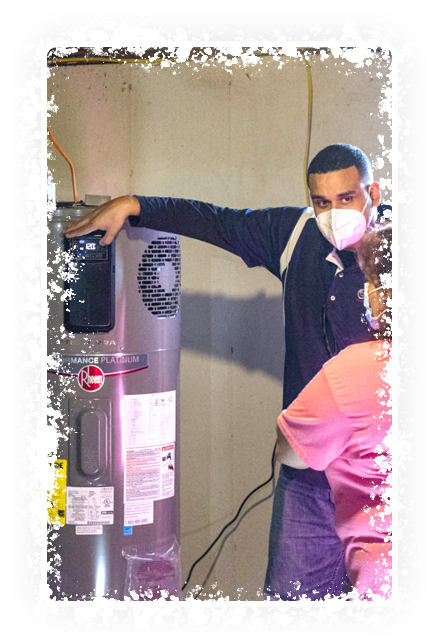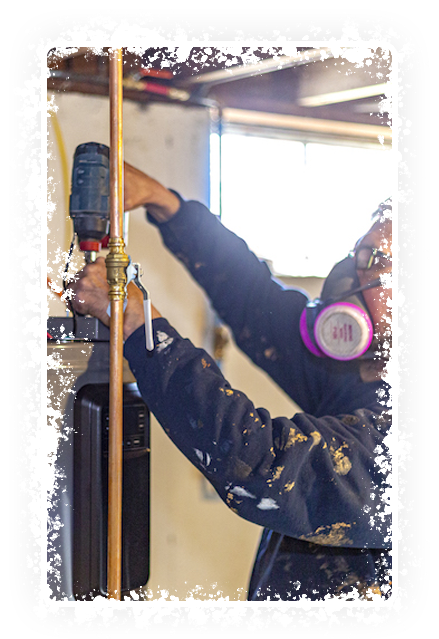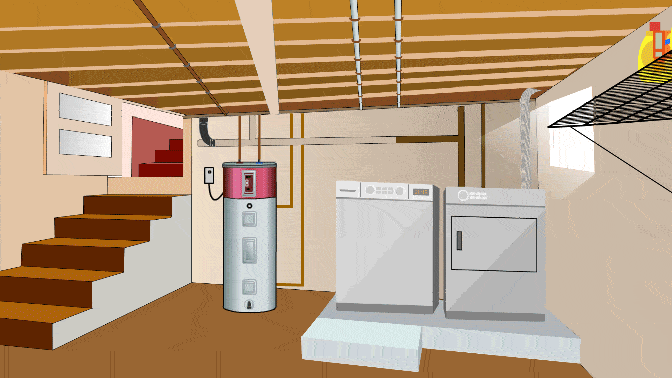Water Heaters
Heat Pump Water Heaters
A heat pump water heater is a cost-effective & environment-friendly alternative to a standard electric water heater. The operational principle of a heat pump water heater is a heat pump or a refrigerator in reverse.
It absorbs energy from the surrounding air and dumps it inside the tank at a higher temperature.
Despite their high upfront costs, heat pump water heaters are quite popular in homes because of their low maintenance and annual savings on energy bills. The heat pump water heaters are two to three times more energy efficient than traditional electric resistance water heaters.




